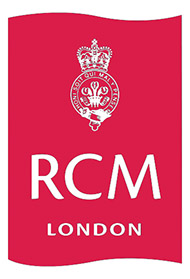About our Project
Although it is often acknowledged that early modern books were routinely read aloud we know relatively little about this. Oral reading is not embedded as an assumption in existing scholarship. On the contrary, over the last two decades it is the studious and usually silent (male) reader, pen in hand, who has been placed centre stage. Furthermore, reading aloud is usually understood rather narrowly, to involve the speaking voice only whereas we include 'singing' from books too. Moreover, the history of reading has developed to date with lone scholars working very often on a specific period and in their discipline. So the history of Reading Aloud in the sixteenth / seventeenth centuries and the eighteenth century is developing differently. There hasn't been the pooling of disciplinary expertise to establish the evidence and methods needed to generate a confident research area.
The aim of this project is to establish a network of early modern scholars (1500-1800) and partners to explore new approaches to the history of reading that take account of how books were voiced and heard. We will explore the kind of evidence and research methods that might serve this end. We will explore how reading aloud relates to other kinds of orality, what it can tell us about the civic life of the book in early modern culture and in our own time too, and how awareness of performance might inform our reading of early modern writing today.
We want to encourage scholars to share methods, resources and histories to establish this as an interdisciplinary research area. We will explore singing from books as a form of reading aloud, helping musicologists to understand how the interpretation of early modern musical texts belongs to the history of reading; we will help literary scholars and historians to use musical resources to explore the sociability of non-musical as well as musical performance; we will help literary scholars and musicologists to work with and understand the methods being developed by linguists to recover the historical voice. We will also bring scholars from all of these disciplines into contact with the recent research of anthropologists working on non-European oral cultures, and with partners who have an interest in and commitment to the benefits of 'shared reading' or 'public reading'. We will explore together with our partners ways of valuing and making meaningful today texts that were written to be read aloud many centuries ago. We will consider how awareness of this reading experience, then and now, might inform, say, scholarly editing for future generations, as well as the way we read all kinds of earlier literatures as academic as well as simply interested readers.
The Voices and Books Network will be hosting 3 workshops in 2014.
We are also taking part in a 4th workshop organised by the Italian Voices team at Leeds University: 'Performing Text in Early Modern England and Italy: Interpreting the Evidence' on May 29th. See here for details.
April 11th-12th 2014
The first workshop, convened by Professor Richard Wistreich, was held at the Royal Northern College of Music in Manchester. For the schedule of the public event on Saturday 12th and video recordings of the day please click here.
September 7th-8th 2014
The second workshop, convened by Dr Elspeth Jajdelska, was held at Strathclyde University, Glasgow. For a schedule of the public event on Monday 8th and video recordings of the day please click here.
November 10th-11th 2014
Workshop 3 will be held at The British Library, London, and it is convened by Dr Arnold Hunt. For a schedule for the public event on Tuesday 11th November please click here.
We have bursaries for unsalaried ECRs (within 2 years of PhD) and PhD students to cover some of the cost of travel / accommodation to attend a workshop. If you would like this support please send a short statement about how attendance at one of the workshops would benefit your research to the Network co-ordinator: Helen.Stark@ncl.ac.uk. Attendance at all workshops is free (N.B. places may be limited).


